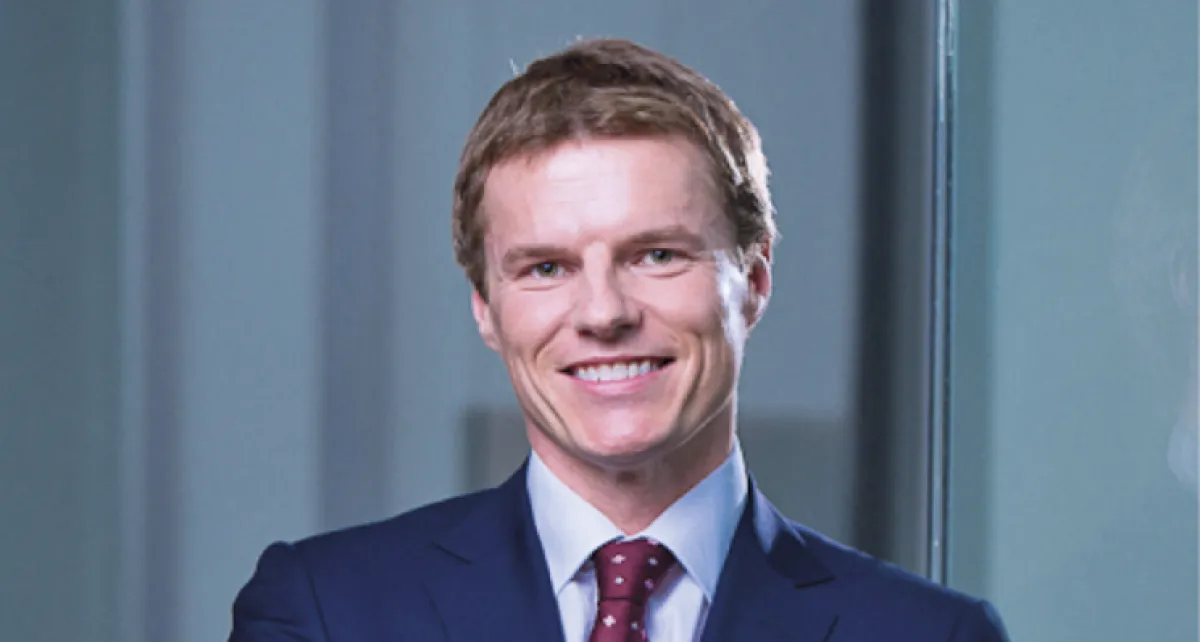
Singapore dialogue: The COVID-19 impact
In what major aspects have you seen the pandemic impact your Singapore office and its work to date?
The pandemic has tested the ability of law firms to respond to crises and has exposed inefficiencies in a number of law firms' traditional ways of working. As a result, the legal services industry as a whole is undergoing significant adaptation – remote working, alongside fewer opportunities to interact face-to-face, has led to significant changes in the way organisations conduct their business, and law firms increasingly need to be aware of clients' changing expectations in order to integrate them into their strategy going forward.
From the outset of the pandemic, our focus has been to protect employees, meet our clients' needs and keep the wider firm fully operational. Internally, we implemented work-from-home setups and flexible working arrangements. The speed and efficiency at which this was carried out by our group IT and business continuity teams was exceptional, and we have been able to maintain our service and productivity levels throughout. We were fortunate that pre-coronavirus Carey Olsen had invested time, energy and money into expanding our IT presence and capability so that when the pandemic hit we were already comfortable with remote working.
Like the adoption of remote working, the move to customer-centric legal service delivery will be even more rapid now and all law firms need to ensure they are redesigning their businesses around the needs of their clients. We have adapted our client development strategy away from in-person meetings to delivering informed and relevant commentary to our clients via virtual meetings, collaborative webinar sessions, electronic client briefings, online courses and one-to-one online training with key clients and contacts.
The pandemic has not changed the need for some of our clients to litigate disputes in the offshore courts. These courts have sought to remain active mainly via the use of remote hearings (telephone and video/hybrid). Our Singapore office has been involved in several virtual hearings through Zoom in both the Cayman and BVI courts, where hearings would ordinarily be heard in person by way of oral hearing. The lockdown measures imposed due to the pandemic have also forced a re-think of document execution practices. Social distancing measures meant that e-signatures and virtual executions (where signatories are not all present in the same place) became the norm.
Beyond the way business is conducted, the pandemic has naturally affected the type of legal work offshore firms are actually doing. Global M&A activity ground to a halt early in 2020, with the start of the year seeing the slowest rate of deal making in several years. More recently however, we have seen a resurgence of Asian M&A, refinancing and IPO activity and promoter-led take private deals, buoyed in some markets by elevated geopolitical tensions. We have also seen a significant increase in enquiries and instructions relating to distressed assets, structures and businesses. As a result, we continue to invest in our Singapore and wider Asian restructuring and insolvency practice as businesses deal with the aftermath of the pandemic.
What were some of the key challenges you had to overcome early on in the pandemic period (and the resulting restrictions like circuit breaker etc), particularly when it came to employee safety and client relationships? Now it is November – what are your priorities now and going forward?
The initial pandemic 'reaction phase' was all about being prepared. It involved rapidly executing crisis management plans which were designed to keep our staff safe and enable business resilience. That included moving to virtual governance and client engagement as social distancing, office closures and work-from-home measures became the norm during the circuit breaker period. A key priority was to ensure that both our staff and clients had access to technology platforms that could enable secure, effective remote working.
The pandemic has also forced our staff to navigate a range of professional and personal challenges, particularly in relation to working remotely. Carey Olsen is the fastest growing offshore firm in Singapore and we had several new joiners during the first half of this year. It is easier for staff who are already part of a well-connected team to stay connected and maintain relationships, but with new starters integration during the pandemic period has been more difficult. It is also easier to set responsibilities, expectations and boundaries through informal communications in the office and for new joiners to learn and absorb new information through "shadowing" within an office. As a result, we have paid extra attention to alternative communications channels and adopted different approaches to ensure that new joiners can learn and build relationships in a remote environment (including by using technology to carry out training and induction programs and generally bring people together). Our top priorities now (and going forward) are to continue to invest in our people and to be innovative in how we connect and engage with clients, meet their commercial needs and address the difficulties they are facing. To achieve those goals, we will support collaboration, flexibility and connectivity with our employees and clients through regular communications and technology.
With employees generally working from home, how have you looked to balance productivity with employee morale and wellbeing? What are some lessons you will take for the future when it comes to employee engagement going forward?
Our staff are, and will continue to be, Carey Olsen's most valuable assets. In Singapore we have recently commenced a phased reopening of our office with our staff split into two groups, with each allowed to go into the office on alternative weeks. As such there has been an ongoing focus on making our office secure and safe for staff returning to work, but we have always sought to prioritise the wellbeing and mental health of our staff. Some may find it difficult returning to the office and require additional support. Others may still be working from home, feel isolated from the wider team and find that the divide between work and home life has become blurred. Employee engagement and trying to keep a sense of humour about things has been key to making sure our staff have felt connected, supported and motivated during these times. We now share more financial performance metrics across the office and note trends, challenges and areas for improvement. We've tried to give employees as much comfort as we can and are open on how the wider firm is performing. We send pandemic care packages to staff, have regular office (and department) catch-up coffees and hold informal quiz sessions with new joiners about themselves and Carey Olsen. These things have helped with communication and feeling part of a team.
A key lesson from this period is the importance of listening to your team, sense-checking what's working and what isn’t and being agile enough to change approaches so that our office productivity, morale and culture is maintained.
Companies today are facing a challenging period and having to make difficult decisions. What are the ways you feel that you as their legal counsel are able to help them during this time?
Just as clients are adapting to changes due to the pandemic, law firms in turn need to adapt to the changing needs of their clients. It is essential to strike the right balance between having an open, flexible approach to communications with our clients using new technology while also having a secure and pragmatic approach to conducting safe in-person client meetings where necessary. At the same time, our clients continue to want a clear and transparent billing relationship with their lawyers which during this challenging period often requires flexible fee arrangements in managing their budget.
Captive clients don’t exist anymore – a client works with us because we have the trusted advisors, required expertise and fee structure that align with the added value that it is seeking. They need to know that we are available for them when they need us, that we give them good advice and that we can solve their legal problems.
Law firms with strong knowledge of their clients' businesses will be better placed to weather the pandemic and react quickly. As such, our emphasis during the pandemic has been on solidifying one-on-one relationships with our key clients in order to better understand their business and strategic needs. We do this through increased personal interactions with clients (such as picking up the phone and calling them), issuing bespoke legal updates, and hosting client-specific seminars and training sessions
What are some major takeaways for you from this period when it comes to the office and how it is being run, and how do you feel you will use some of these lessons in the future to build further resilience?
The current period has accelerated the pace of technological adoption in the legal industry and generally brought about an increased acceptance of change. It has demonstrated that changes in legal practice that we thought difficult or longer-term (such as flexible working) could happen in a matter of weeks.
This is a time of unique opportunity to reshape the way lawyers work with their clients and rethink the structure and scale of our practice areas, sectors and geographical locations. Law firms that recognise the value of a communication-driven culture will have an added dimension of resilience and will find themselves better placed to more effectively collaborate with their staff and clients. For those law firms who are innovative, flexible and invest in technology, the pandemic experience will build goodwill and brand loyalty from both their employees and their clients.
An original version of this article was published by Asian Legal Business, November 2020.
© Carey Olsen 2020.


